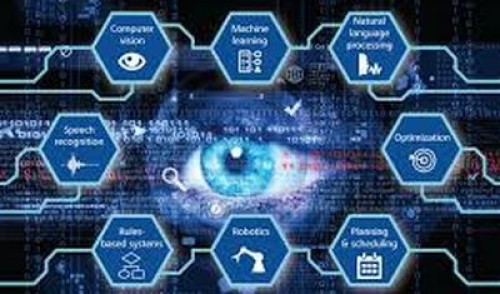New Delhi: Artificial Intelligence (AI) and cross-industry collaborations are creating new avenues for data collection and offering personalised services to users this year, according to a report.
Among other technology trends that are picking up this year are the convergence of the smart home and healthcare, autonomous vehicles coming for last-mile delivery and data becoming a hot-button geopolitical issue, according to the report titled ‘14 Trends Shaping Tech’ from CB Insights.
“As a more tech-savvy generation ages up, we’ll see the smart home begin acting as a kind of in-home health aide, monitoring senior citizens’ health and well being. We’ll see logistics players experiment with finally moving beyond a human driver,” said the report.
“And we’ll see cross-industry collaborations, whether via ancestry-informed Spotify playlists or limited edition Fortnite game skins,” it added.
In September 2018, Spotify partnered with Ancestry.com to utilise DNA data to create unique playlists for individuals.
Playlists reflect music linked to different ethnicities and regions. A person with ancestral roots in Bengaluru, for example, might see Carnatic violinists and Kannada film songs on their playlists.
DNA data is also informing how we eat. GenoPalate, for example, collects DNA info through saliva samples and analyses physiological components like an individual’s ability to absorb
certain vitamins or how fast they can metabolize nutrients.
From there, it matches this information to nutrition analyses that it has conducted on a wide range of food and suggests a personalised diet. It also sells its own meal kits that use this information to map out menus.
“We’ll also see technology brands expand beyond their core products and turn themselves into a lifestyle,” said the report.
For example, as electric vehicle users need to wait for their batteries to charge for anywhere from 30 minutes to two hours, the makers of these vehicles are trying to turn this idle time into an asset.
China’s NioHouse couples charging stations with a host of activities. At the NioHouse, a user can visit the library, drop children off at daycare, co-work, and even visit a nap pod to rest while charging.
Nio has also partnered with fashion designer Hussein Chalayan to launch and sell a fashion line, Nio Extreme.
Tech companies today are also attempting to bridge the gap between academia and the career market.
Companies like the Lambda School and Flatiron School offer courses to train students on exactly the skills they will need to get a job, said the report.
These apprenticeships mostly focus on tech skills like computer science and coding. Training comes with the explicit goal of employment and students only need to pay their tuition once they have landed a job that pays them above a certain range.
Investors are also betting on the rise of digital goods. While these goods cannot be owned in the physical world, they come with clout, and offer personalisation and in-game experiences to otherwise one-size-fits-all characters, the research showed.
(IANS)
